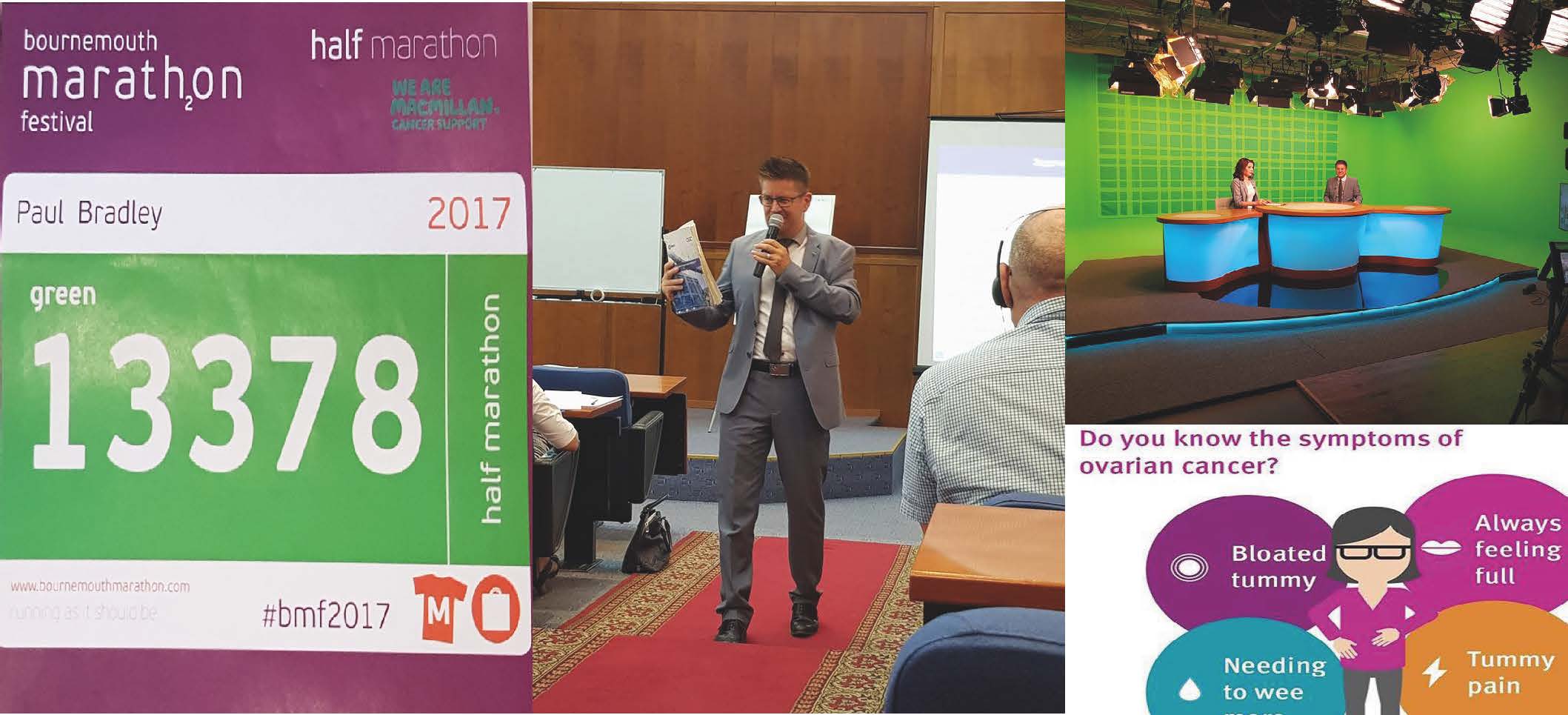
BE THE FIRST TO KNOW
Subscribe to the SPOCE newsletter to receive timely updates about new courses, venues and discounts!

Take a look at Paul's experience of training for this years Bournemouth half marathon through the eyes or PRINCE2, the worlds most sought after method of project management...
I received the Project Mandate in October 2016. It was clear and concise. “Run the Bournemouth
Half Marathon on 8th October 2017 and raise awareness and funds for Target Ovarian Cancer”.
Starting Up A Project process was triggered and I created the Project Brief. The main features from this are:
Initiating a Project and Managing a Stage Boundary processes followed, which was essentially confirming the outputs from Starting Up a Project. The main development of information was defining the next stages in more details – i.e. the training plans. The Communication Management Approach was created to establish Facebook and Twitter updates throughout the training. There was also to be updates posted on the Just Giving page.
Controlling A Stage: Delivery Stage – April 2017. This all started very well. A few 10km-20km bicycle rides built some fitness in my legs, and then a couple of 5 and 6km runs gave me some confidence for the running.
The Communication Management Strategy was consulted, and a post to the Just Giving page boasted how well the training was going (I was only a couple of weeks in at this point), when an over-confident wave came over me and a bold statement was posted about completing the race in less than 2 hour! Lesson learned – do not unnecessarily change the criteria just to make yourself look like a hero!
Towards the end of April, I completed a 10km in 56 minutes, and remained confident about the 2 hours completion time, again, posting updates to Facebook (via the Runtastic App) and to Twitter. So far so good.

April went really well. May had several training runs building up to 10km, but then a number of issues started to arise:
▪ Corrective Action – Change the training plan and remove all training during this period.
▪ Response: Accept the risk and catch up with training on my return.
▪ Corrective Action – Continue training in Kazakhstan, but reduce the running to one 5km due to the heat and humidity.
▪ Response: Contingency – plan a 20 minute swim that can be done either early morning or late evening if the running does not happen.
▪ Response: Transfer the impact of this risk with running partners Julia Bradley and Harley Richards to work together on raising the spirits together
▪ Response: Ignore that there is a problem and go on holiday. (Ed. This is clearly an unacceptable risk response).
▪ Response: Claim life is too busy and I’ll do some catching up next week. (Ed. Another unacceptable risk response. This project is on the verge of premature close).
Managing Product Delivery started again, in earnest on 13th, 23rd, 28th and 30th of September, and a final training session took place on 4th October with a comfortable 10km. Despite the turbulence experienced with this project, a late surge in effort made me confident in completing the half marathon on time to meet the acceptance criteria.
Closing A Project approached rapidly, and it was time to look at reviewing the project to create the End Project Report. Happy to say that all Acceptance Criteria was satisfied:
Paul is the Managing Director of SPOCE Project Management Limited, a leading training provider for portfolio, programme and project accreditation. SPOCE is a pioneer in project, programme, risk and IT service management best practices. SPOCE holds the accreditation certificate number 001 having presented the world’s first PRINCE2 training course in 1997.
Paul Bradley is a leading authority on the PRINCE2® project management methodology. With over 20 years in the industry, Paul's knowledge and experience is respected by clients, accreditation bodies and training organisations globally. Paul has been the Director of Training with SPOCE since 2000, and has been an accredited PRINCE2® trainer throughout this time.
See Paul Bradley present “Neither shaken, nor stirred – ‘The perfect cocktail for project professionals’ at Project Challenge in London Olympia on Wednesday 11th October 2017. See http://www.projchallenge.com/learning-professional-development/ for more details.
Contact
Email - paulbradley@spoce.com
Website - www.spoce.com
Twitter - @prince2expert
LinkedIn - in/prince2expert
Facebook - @prince2expert
Paul’s Just Giving page: https://www.justgiving.com/fundraising/p-b?utm_id=121
Target Ovarian Cancer: www.targetovariancancer.org.uk
About SPOCE
SPOCE Project Management Limited is a global leader in delivering best practice training for project programme and risk management. They offer a wide range of courses which can be tailored to suit any form of training need. For example, public courses e-Learning, blended learning and client workshops. SPOCE is the flagship training provider for PRINCE2® and MSP® and were APMGs first ever training provider.
Call; 0800 177 7623 / 0800 17 SPOCE
Email: Clients@spoce.com
Visit: www.spoce.com
Comments